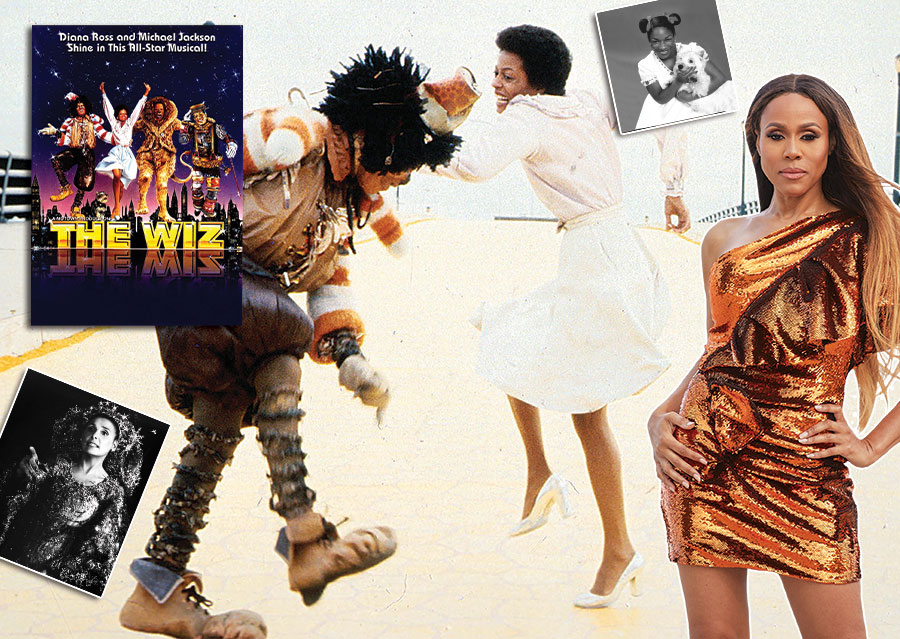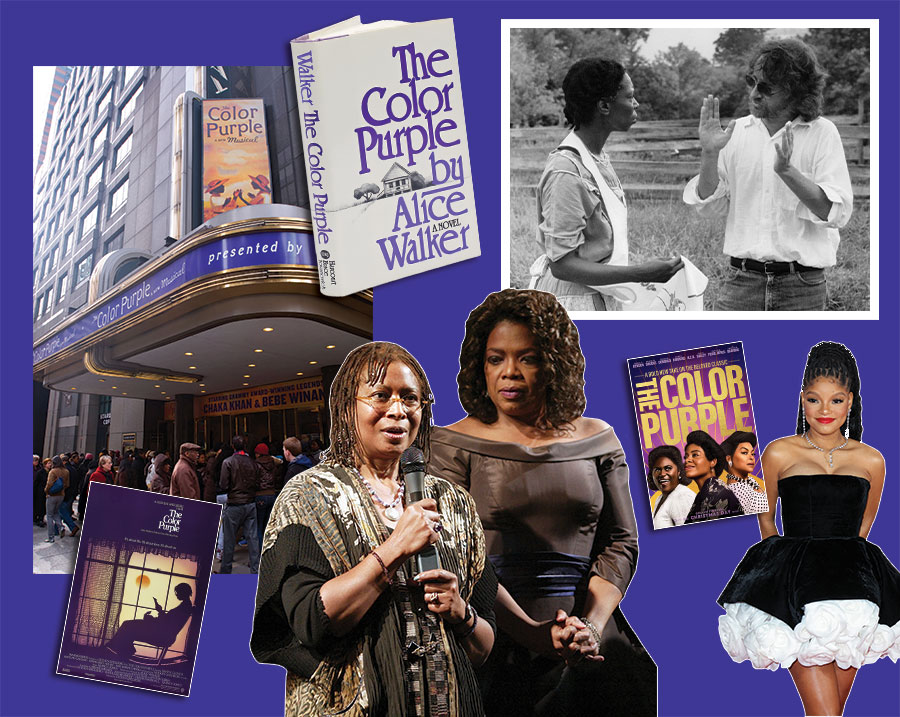‘The Color Purple’: From Stage to Screen and Back Again

Fantasia Barrino as Celie in Warner Bros. Pictures’ new musical take on a classic, 'The Color Purple.' Photo: Courtesy Warner Bros. Pictures
The Wiz and The Color Purple, two consequential productions that explored themes of resilience, friendship and empowerment in an African American cultural context, are back in the spotlight with fresh retellings.
Canadian R&B giant Deborah Cox is Glinda the Good Witch in The Wiz stage revival, which kicked off in September in Baltimore, the city where it originated in 1974. In a sign of the times, former American Idol contestant Nichelle Lewis is the new Dorothy — played by Stephanie Mills in the original production — after casting agents discovered her on TikTok. The musical, which heads to Broadway in April, includes a script by comedian-writer Amber Ruffin; new musical arrangements combining jazz, R&B, blues, gospel, funk and soul; dance moves from Beyoncé’s choreographer, JaQuel Knight; and scenery by Academy Award-winning Black Panther production designer Hannah Beachler. These creative choices should provide a sizzling modern backdrop for The Wiz’s core inspirational messages of identity and hope, and connect contemporary audiences to the story.
While The Wiz hits the stage in Chicago and Des Moines, Iowa, in December, a movie musical of The Color Purple opens in theatres on Christmas Day, which will make it the third adaptation of Alice Walker’s 1983 Pulitzer Prize-winning novel, following Steven Spielberg’s 1985 silver-screen version and, 20 years later, a Broadway production.
Decades after their debuts, these enduring works will continue to captivate audiences and provide a platform for new generations of Black singers and actors.
The Wiz, which reimagined L. Frank Baum’s 1900 story The Wizard of Oz in an urban, African American context, was an early example of Broadway shows with predominately Black casts that got mainstream acceptance and paved the way for Dreamgirls, Bring in ’da Noise, Bring in ’da Funk and Sarafina!
The Wiz, made into a 1978 movie starring Lena Horne as Glinda and Diana Ross as Dorothy (a role made famous by 16-year-old Judy Garland in the 1939 movie, The Wizard of Oz), showcases Black culture in song, dance, costumes and vernacular. It birthed the joyful ditty, Ease on Down the Road, won seven Tony Awards and laid the foundation for diverse casting in Broadway hits such as Hamilton and A Strange Loop.

Just as the first stage production ignited Mills’ singing career and gave rise to Black female singers in musical theatre, like Leslie Uggams, Audra McDonald, Heather Headley and Cynthia Erivo, the 1978 movie amplified the expansive talents and charisma of Ross, Horne, Michael Jackson (the Scarecrow) and Richard Pryor (the Wiz), cementing their versatility and cultural significance.
The casting of the 1985 The Color Purple movie also stands out for two motion-picture debuts that garnered Oscar nominations — regional Chicago talk show host Oprah Winfrey as Sofia and stand-up comedian Whoopi Goldberg as Celie.
In the exhaustive new book Purple Rising: Celebrating 40 Years of the Magic, Power, and Artistry of The Color Purple, casting director Rueben Cannon recalls being inundated by Black performers who wanted to audition for the film. “Everyone — famous, well-known actors as well as talented unknowns — was crazed and obsessed, wanting to play a role. At that time, there were so few Black projects being produced that The Color Purple became a focal point of increased anxiety and desperation among Black actors.”
The adaptation of Walker’s feminist tome about a mistreated and uneducated Black woman’s struggle for empowerment struck a chord with its gentle and empathic examination of domestic abuse. Although the film was criticized for pushing negative images of Black men through the brutal character of Mister, played by Danny Glover, the project highlighted the importance of stories that reflected the diversity and strength of Black women. The stage adaptation of The Color Purple played Broadway from 2005 to 2008, and again in 2015, with lead roles going to talents like Hamilton’s Renée Elise Goldsberry and American Idol alums Fantasia Barrino and Jennifer Hudson.

Winfrey, on the strength of her performance in the film, became a talk-show juggernaut, media brand and billionaire. She is producing the latest reimagination with Spielberg and Grammy legend Quincy Jones, the composer on the original movie, and they have assembled a dazzling line-up for the movie musical. Veteran performers like Barrino (as the lead, Celie) and Taraji P. Henson (as jazz singer Shug Avery) will appear alongside newcomers like The Little Mermaid star Halle Bailey and R&B singer H.E.R., with Ghanaian director Blitz Bazawule at the helm. In the post-#MeToo era, the story may not seem as controversial, but perhaps it will serve as a reminder that the poignant struggles and triumphs of Black women deserve ongoing exploration.
After Marvel made more than a billion dollars in 2018 selling tickets to Black Panther, and A Strange Loop won a Tony for Best Musical, all-Black casting is no longer novel or risky, and adapting classic productions reflects its continuing cultural relevance.
As Winfrey told Variety about remaking The Color Purple almost 40 years later: “As long [as] there is a need for self-discovery; self-empowerment; as long as there is a need for victory in someone’s life; as long as there is a need for people to know what it feels like to be loved up and to be made full and hold to somebody else’s love; there will be a need for The Color Purple.”
A version of this article appeared in the Oct/Nov 2023 issue with the headline ‘From Stage to Screen and Back Again’, p. 20.